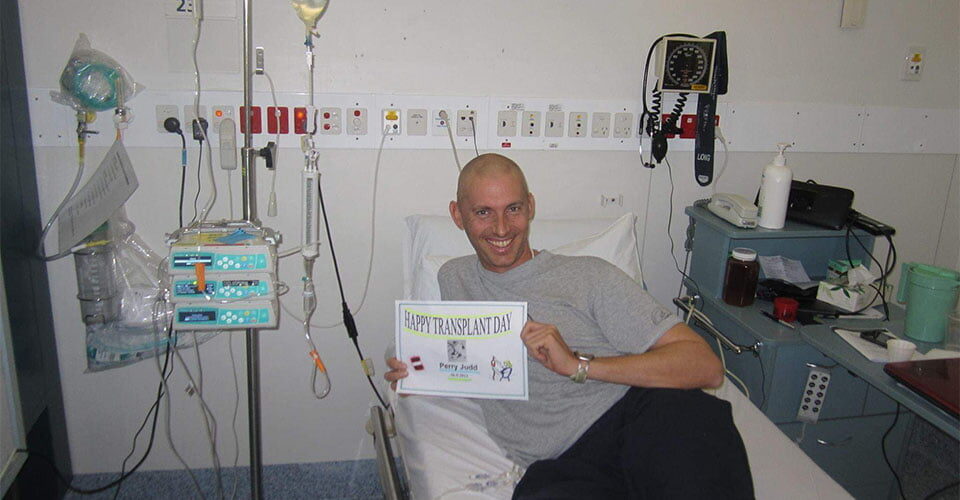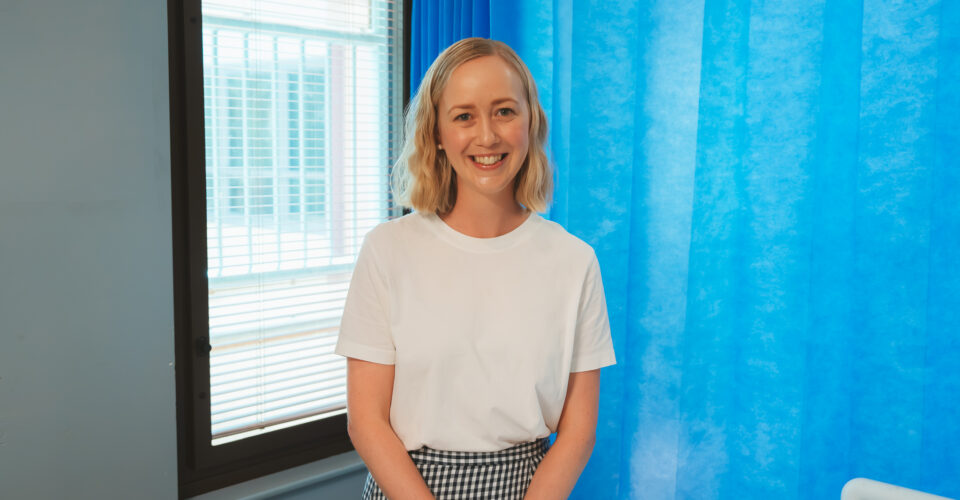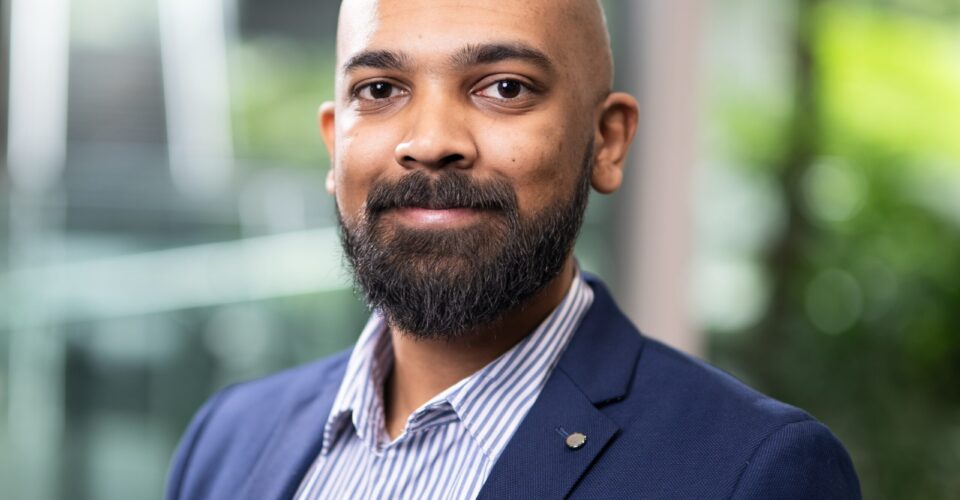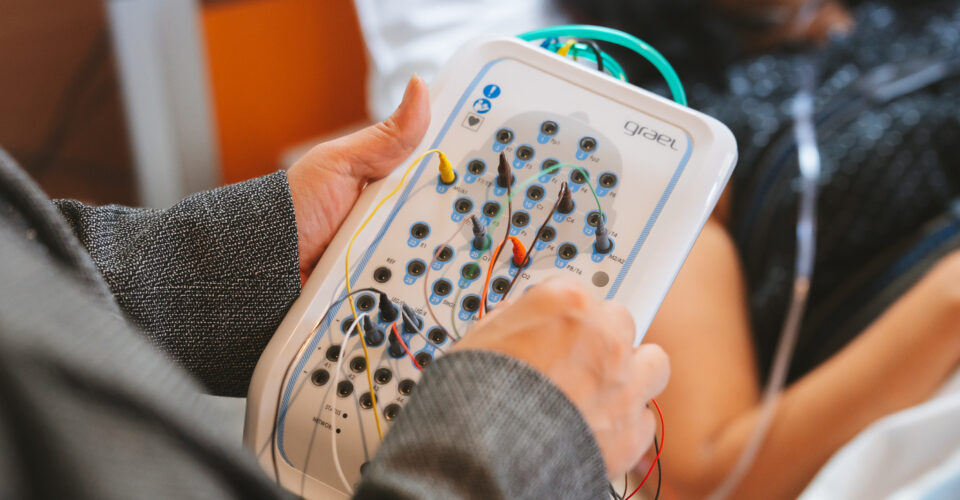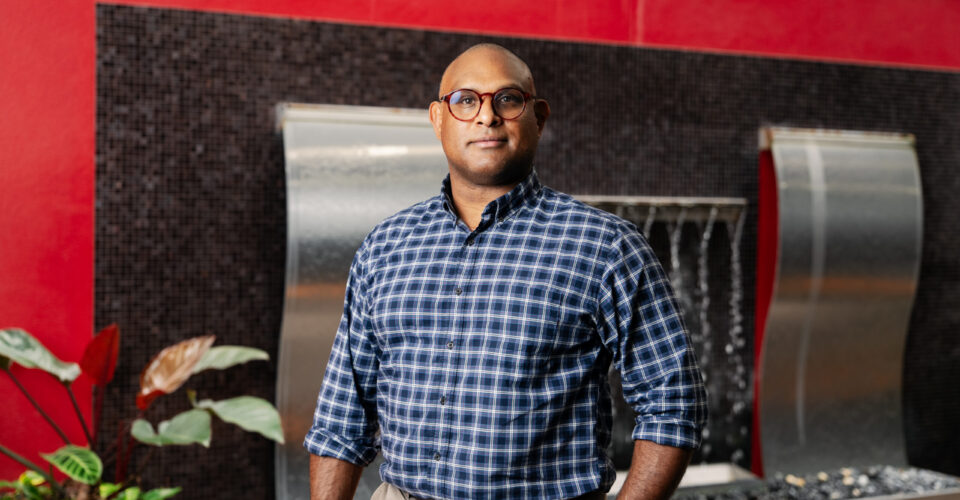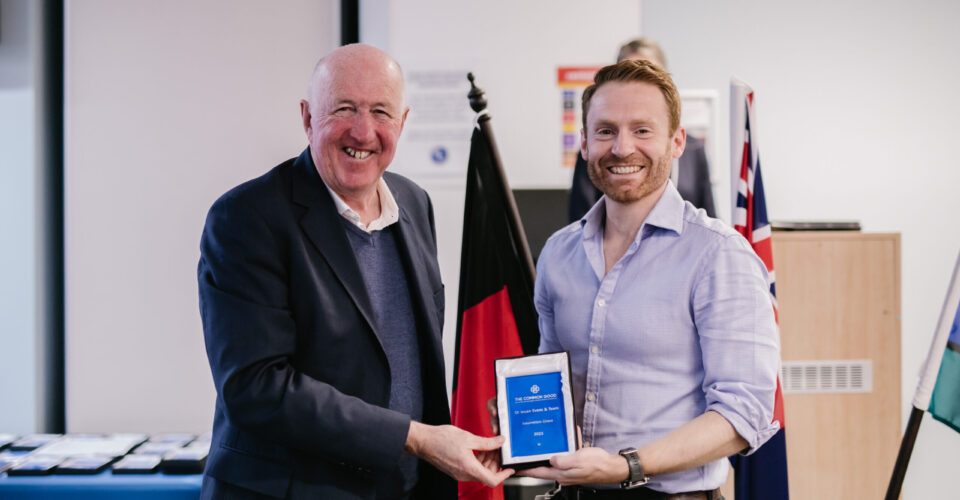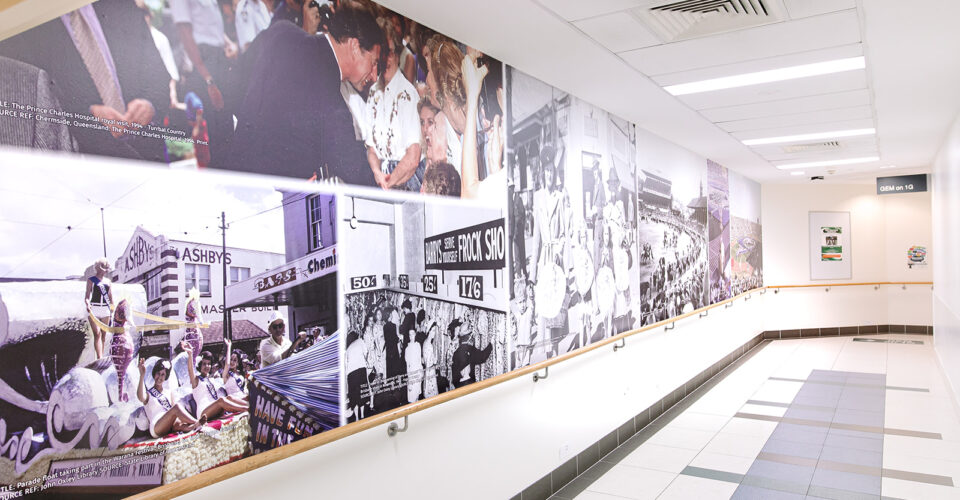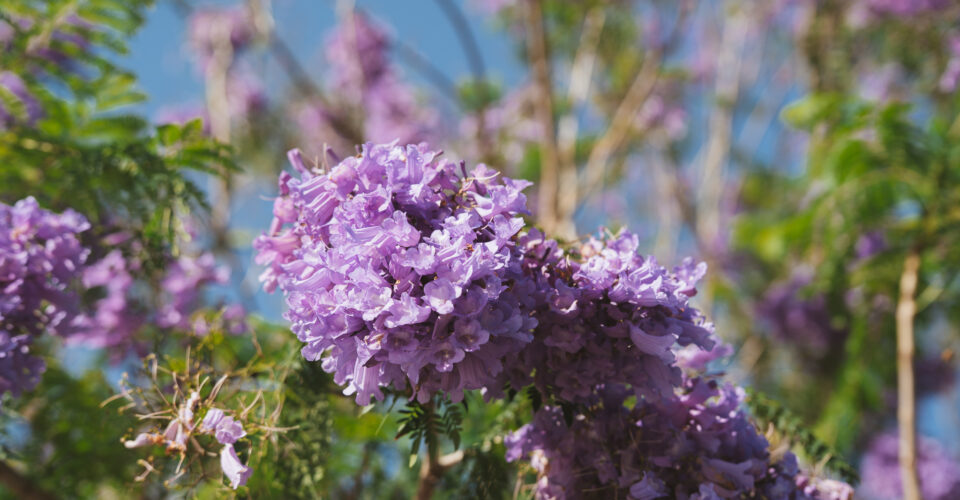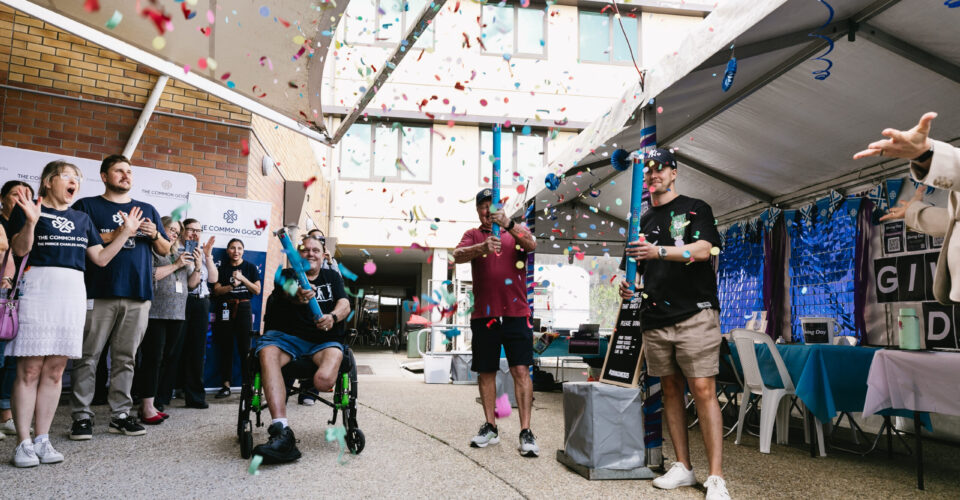Perry Judd is the Director of Allied Health at The Prince Charles Hospital and a former competitive cyclist who is about to jump on the saddle at this year’s Australian Unity Tour de Brisbane. But his trip to his current destination was challenging, riddled with trials and tribulations.
In January 2013, Perry was diagnosed with Acute Myeloid Leukemia (AML) – a cancer of the bone marrow and blood. At the time, the father-of-two, then 37, had a 1-year-old daughter and a 6-year-old son.
“I went through the grieving process where first I was angry, then I denied it, believing it’s not happening to me, and then I went through the bargaining phase pleading with whatever high powers up there to let me live. I didn’t want to leave my family behind. I had to have those serious discussions with my brother about looking after my family if I didn’t make it.” Perry recalled.
Just before receiving this confronting diagnosis, Perry spent a year in Europe working as a physio with an Eastern European national cycling team, and competing in UCI masters events.
“I’d never been fitter in my life. But at the same time, I realised that at the end of that year, when I was getting tired and demotivated, I was probably sicker than I knew. And that was the start of it,” he recalled.
“When I was training for cycling, I was very fatigued, unable to get my heart rate up, and I felt like I was drained of energy. If I was pushing myself too hard, I felt like I was going to faint. So, I caught onto something being wrong quite early because I was noticing all these effects in training.”
Perry’s initial prognosis wasn’t good.
“Basically, if I didn’t get a full match for a bone marrow transplant, the statistics weren’t really in my favour,” he recalled.
“But a series of events ended up clicking. My brother was found to be a full match for a donor, and there was only about a 25% chance that that would be the case.”
While this was incredibly fortunate for Perry, he says preparing his body for that bone marrow transplant took an “absolute toll” on him mentally and physically.
“I had five rounds of chemotherapy and several days of full body radiation to wipe out all of my stem cells. I wasn’t in a good place for quite a long time, and I just had to get to that endpoint where I was ready to receive the donor cells,” he recalled.
Receiving a transplant is an absolute gift, however, there is still a period post-transplantation where the body must adapt and recover first.
“You’re not over the hump when you get that transplant. Then you’ve got to wait for your blood counts to come back and then have more biopsies and hope that the new DNA has taken, and your body is accepting it and producing more blood cells and that they’re differentiating how they’re supposed to,” Perry said.
“Once you’ve had the transplant, you might also have to battle graft-versus-host-disease (GVHT) – where your body still recognises that there’s something foreign there, and it fights it. It can cause all sorts of other problems. Graft-versus-host-disease is one of the big contributors to poor outcomes and quality of life post-transplant.”
Following his transplant, Perry had a mild form of acute GVHD and went on a clinical drug trial for that condition. Clinical trials are an important way to look at new ways to prevent, detect, or treat diseases and are a crucial step in the research process.
“You can’t do that research without the support of funding bodies and grants, and it can be life-changing,” Perry said.
Since his bone marrow transplant, Perry has celebrated some remarkable milestones in his health recovery and personal and professional life.
He says the first milestone was reaching 100 days post-transplant, the second was the 1-year mark, and the third was when 5-years ticked by.
This May, Perry will celebrate ten years post-transplant.
“In ten years, I’ve gone from being very, very unwell, staring my mortality in the face, to being the Director of Allied Health at The Prince Charles Hospital. It’s been a pretty amazing journey.”
And while he acknowledges that it was touch and go for a while, he is incredibly grateful for the care he received and eventually realised he could have a healthy, happy, rich, and fulfilling life again.
Although, it wasn’t an easy feat to get back on his bike.
“I went through a period where I didn’t like cycling because I was traumatised by the memory of how good it felt when I was fit, and then getting on the bike and being puffed in 100 metres just put me off completely,’ he said.
Perry had great friends who supported him during this journey and encouraged him to take it easy. It took five years until he could pedal 100 kilometres in one go. He was determined to keep improving and eventually he cycled 1000 kilometres around Tasmania in 7 days.
“I had the most fantastic time, and I felt great. Every day I felt stronger and stronger, and I knew I could get fit again and stay fit again,” he said.
Perry is now gearing up for the Australian Unity Tour de Brisbane in April. Along with the opportunity to raise funds for life-changing medical research via The Common Good – which he values even more since his personal experience – he’s also so glad that his love of cycling is back.
“Cycling gives you the freedom you just can’t get with any other sport. It’s not only a sport; it’s a mode of transport. So, what I love about cycling is that you can go a different route each time and go far, see a lot, and discover new places. You can’t do that swimming, and you can’t even do that running – you can’t get as far in any other athletic pursuit,” he says.
“It’s very mindful, you can concentrate on certain aspects of your breathing and your body, and you can just let yourself drift off into another world, and, before you know it, an hour has passed. Even riding to work, that it is my set and reset time.”
A few weeks after the Australian Unity Tour de Brisbane, he’s jumping on the saddle again, heading to Perth to compete in the Australian team at the World Transplant Games for the first time.
“It’s not so much about the competition; it’s about the comradery and meeting other people who’ve shared a similar experience,” he said.
You can support Perry on his Australian Unity Tour de Brisbane ride here.
